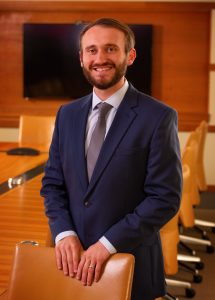The Wisconsin Fair Dealership Law Enters Its 50th Year: Open Issues
The Wisconsin Fair Dealership Law has been an integral feature of Wisconsin law, shaping the state’s economy for the past 50 years. To those protected by the law, the WFDL provides valuable security to their business operations and their employees. By contrast, the WFDL has been criticized as inefficient, vague, and protectionist by parties who are subject to the WFDL’s high cause and notice standards. With these differing views, the WFDL has been a source of extensive litigation since its enactment on April 5, 1974. While there have been over 500 decisions interpreting various aspects of the law, there are many issues left unresolved. We conclude this year-long Wisconsin Fair Dealership Law blog series by identifying a few open issues that may be addressed in the next fifty years.
Divergent Approaches to Community of Interest Standard
As alluded to in an earlier blog defining a WFDL-protected dealership, WFDL protection often hinges on a vague community-of-interest standard. The Wisconsin Supreme Court has repeatedly interpreted that standard broadly to encompass an “extraordinarily diverse set of business relationships.” Ziegler Co. v. Rexnord, Inc., 139 Wis. 2d 593, 602, 407 N.W.2d 873 (1987). But the Seventh Circuit has taken its own approach to determining whether a community of interest exists, focusing on whether a dealer draws a significant percentage of its business from a grantor or has made substantial grantor-specific investments. See, e.g., Frieburg Farm Equip., Inc. v. Van Dale, Inc., 978 F.2d 395, 399 (7th Cir. 1992). This divergence has created a unique problem as federal courts sitting in diversity are bound to follow both state law and their circuit precedent. (We recently wrote about this tension at greater length in our article on divergent approaches to the community-of-interest standard in the American Bar Association’s Franchise Law Journal.) It remains to be seen whether the difference between these approaches will be perpetuated or ultimately reconciled.
Exterritoriality
When a dealer operates in multiple states, courts have sometimes extended the WFDL beyond Wisconsin and applied the statute’s protection to the dealer’s entire distribution footprint. In Morley-Murphy v. Zenith, 142 F.3d 373 (7th Cir. 1998), the Seventh Circuit warned that there are significant issues under the Dormant Commerce Clause for the WFDL to apply extraterritorially. But the United States Supreme Court’s recent decision in National Pork Producers Council v. Ross, 598 U.S. 356 (2023), may eliminate the Seventh Circuit’s concerns. There, the Supreme Court found that purposeful discrimination against out-of-state-businesses may violate the Dormant Commerce Clause. Although the WFDL was not before the Ross court, the WFDL does not purposefully discriminate against out-of-state businesses and thus seems to not conflict with the Dormant Commerce Clause. Time will tell if Ross has assuaged the hesitancy shown by some courts to apply the WFDL beyond Wisconsin’s borders. (See our recent article in Wisconsin Law Review Forward for a longer discussion on out-of-state application of the WFDL.)
Novel Applications
As discussed in an earlier blog, the WFDL has been interpreted expansively and has been applied to non-obvious relationships. In the past 15 years, courts have recognized that a party may maintain a protected dealership with a nonprofit or governmental entity. See Girl Scouts of Manitou Council, Inc. v. Girl Scouts of U.S. of Am., Inc., 549 F.3d 1079 (7th Cir. 2008); Benson v. City of Madison, 2017 WI 65, 376 Wis. 2d 35, 897 N.W.2d 16. Those decisions underscore that the universe of relationships covered by the law has not been fully defined, and they make plain that the door remains open for other less-obvious dealers to file suit under the statute. It follows that the application of the WFDL to non-obvious relationships is still a developing area.
All told, to the joy of dealers and to the dismay of many grantors, the Wisconsin Fair Dealership Law remains one of the most unique facets of Wisconsin law, as no other state has a dealership law that provides nearly as broad of protections as ours. For over 50 years, Stafford Rosenbaum’s Dealership and Franchise Law Team has been preeminent in helping grantors and dealers navigate their obligations under the WFDL and the franchise and dealership laws of other states. As a full-service law firm, we are uniquely positioned to advise, counsel, and problem-solve for grantors and dealers in both transactional and litigation matters, and we pride ourselves on our ability to find innovative solutions for the most complex relationships.
Stafford Rosenbaum LLP is a full-service law firm with two convenient office locations in Madison and Milwaukee, Wisconsin. 145 years of dedication to businesses, governments, nonprofits, and individuals has proven that effective client communication continues to be the heart of our practice.




